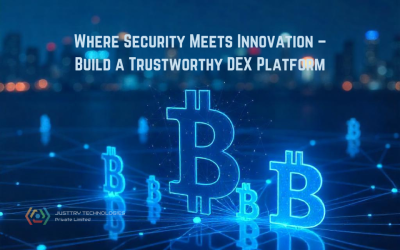Categories
Tags
-
##CryptoMLM #BlockchainTechnology #MLMSoftware #JustTryTechnologies #NetworkMarketing #CryptoRevolution #DecentralizedMLM #BlockchainInnovation #MLMIndustry
##CryptoMLMSoftware #MLMSolutions #BlockchainMLM
#crypto exchange development companies
#crypto exchange development
#crypto trading
#crypto exchange software development
#centralized crypto exchange development company
#crypto exchange development company
#crypto exchange platform development company
#White Label Crypto Exchange Development
#Cryptocurrency Exchange Development Service
#crypto exchange platform development
##CryptoMLM #MLMSoftware #CryptoMLMSoftware #CryptoMLMDevelopment #BlockchainMLM #CryptoSolutions #MLMTechnology
##CryptoMLM #BlockchainSolutions #MLMSoftware #CryptoSoftware #BlockchainDevelopment #JustTryTechnologies
##CryptoMLM #BlockchainSolutions #MLMSoftware #JustTryTechnologies #NetworkMarketing #SmartContracts #CryptoBusiness #InnovativeSolutions #MLMDevelopment #BusinessGrowth
#Crypto exchange developers in India
#Top Crypto Exchange Development Company
#crypto exchange
#white label crypto exchange
#white label crypto
Archives
7 Key Features of a Secure Decentralized Crypto Exchange Platfo
-
Posted by olive ethan Filed in Business #crypto exchange development company #crypto exchange platform development company #Cryptocurrency Exchange Development Service #crypto exchange platform development #Crypto exchange developers in India 573 views
Decentralized crypto exchange platforms (DEXs) are revolutionizing cryptocurrency trading by enabling peer-to-peer transactions without intermediaries. While they offer enhanced privacy and control, ensuring security remains a priority for building user trust. Here are the 7 key features every secure Decentralized Crypto Exchange Platform should include.
1. Reliable User Authentication
Decentralized exchanges operate on a non-custodial model, giving users full control over their private keys. However, platforms can enhance security by offering features like secure wallet integrations, password-protected recovery options, and even biometric authentication for better usability and safety. Reliable user authentication safeguards users’ accounts from unauthorized access and ensures only authorized individuals can execute transactions, minimizing the risks of unauthorized activities.
2. Secure Smart Contracts
Smart contracts are the foundation of decentralized exchanges, automating trades and ensuring trustless transactions. However, vulnerabilities in these contracts can lead to exploitation. Secure platforms prioritize thorough audits by blockchain development experts to identify potential risks and resolve them proactively. Well-written and thoroughly audited smart contracts ensure safe, seamless trading by eliminating opportunities for malicious actors to exploit coding flaws.
3. Non-Custodial Wallet Integration
A defining characteristic of decentralized crypto exchange platforms is their non-custodial nature, allowing users to maintain ownership of their funds. Seamless integration with popular wallets like MetaMask, Trust Wallet, and Ledger, combined with multi-signature support, ensures enhanced security. Since users maintain control of their private keys, they reduce the risk of funds being lost or compromised through centralized custody breaches, making the exchange more trustworthy and secure.
4. Advanced Encryption and Privacy Protocols
Although decentralized exchanges minimize the risk of centralized data breaches, encryption is still crucial for safeguarding transaction data and communication. Platforms should implement advanced encryption protocols to protect sensitive interactions between users and the blockchain network. Strong encryption builds user confidence by preventing malicious actors from intercepting or compromising sensitive data, thus ensuring both privacy and data integrity during transactions.
5. Liquidity Pool Security
Liquidity pools are crucial for decentralized exchanges to operate efficiently, offering consistent trading experiences. However, these pools are susceptible to risks such as rug pulls, impermanent loss, and flash loan attacks. Secure platforms address these vulnerabilities by employing time-locked contracts, impermanent loss protection tools, and fraud detection mechanisms. By safeguarding liquidity pools, platforms create a more secure trading environment, encouraging users to participate with confidence in providing liquidity.
6. Transparent Governance through DAOs
Decentralized exchanges often rely on decentralized autonomous organizations (DAOs) to manage governance. By giving users voting rights on platform changes and upgrades, DAOs promote fairness and accountability. Publicly accessible records ensure all decisions are transparent, preventing any single entity from having undue influence over the platform’s operations. Transparent governance ensures that all decisions are made fairly and equitably, fostering trust and community participation.
7. Adherence to Blockchain Development Standards
Decentralized crypto exchange platforms must follow industry best practices to ensure scalability, interoperability, and sustainability. This includes implementing open-source code, supporting cross-chain functionality, and maintaining compatibility with major blockchain networks. Adhering to blockchain development standards ensures the platform operates efficiently across multiple blockchain environments, enabling smooth trades and increasing platform longevity. It positions the exchange as reliable and adaptable, ready to handle increasing user activity and evolving technologies.
Addressing Security Challenges in Decentralized Exchanges
While decentralized exchanges offer several advantages, security challenges must be addressed to maintain user trust:
-
Combatting Phishing Attacks: Educate users about verifying the platform’s authenticity before entering sensitive data and employ anti-phishing tools to prevent scams.
-
Ensuring Seamless Wallet Compatibility: Test integrations with various wallets to reduce transaction errors and enhance the user experience.
-
Continuous Updates and Monitoring: Regularly update the platform to address emerging threats and monitor activity to detect unusual behavior.
The Role of Blockchain Development Services
Blockchain development services play a crucial role in building secure decentralized exchanges. These services include:
-
Smart Contract Auditing: Ensuring all contracts are free of vulnerabilities.
-
Custom Features: Developing innovative tools such as gas optimization and cross-chain bridges.
-
Infrastructure Development: Designing platforms that are scalable and interoperable.
Working with experienced blockchain developers ensures the platform’s security and functionality meet industry standards.
Looking Ahead
Decentralized crypto exchange platforms are reshaping the future of trading by prioritizing user control and privacy. However, security remains a key factor in building a successful platform. Incorporating features like reliable authentication, secure smart contracts, and strong encryption protocols will set your DEX apart in this competitive space.
Conclusion
A secure Decentralized Crypto Exchange Platform isn’t just about facilitating trades; it’s about creating a safe and transparent environment for users. By focusing on the seven key features outlined above and leveraging blockchain development services, you can deliver a platform that inspires confidence, fosters community, and ensures long-term success in the crypto ecosystem.
Developing a decentralized exchange requires technical expertise, strategic planning, and a commitment to security and usability. By following the outlined steps and investing in the right features, you can create a scalable and competitive platform that caters to the growing demand for decentralized trading.
As the DEX ecosystem continues to expand, now is the perfect time to explore Decentralized Exchange Development and establish a foothold in this dynamic and fast-growing industry.
-
